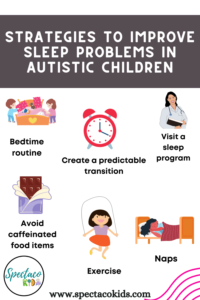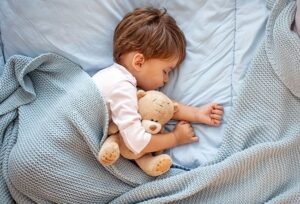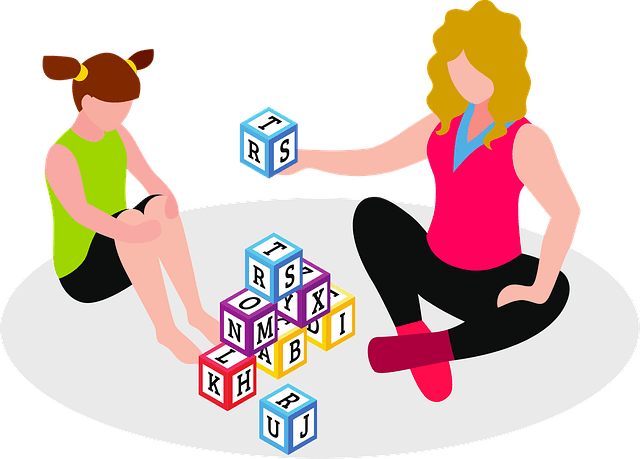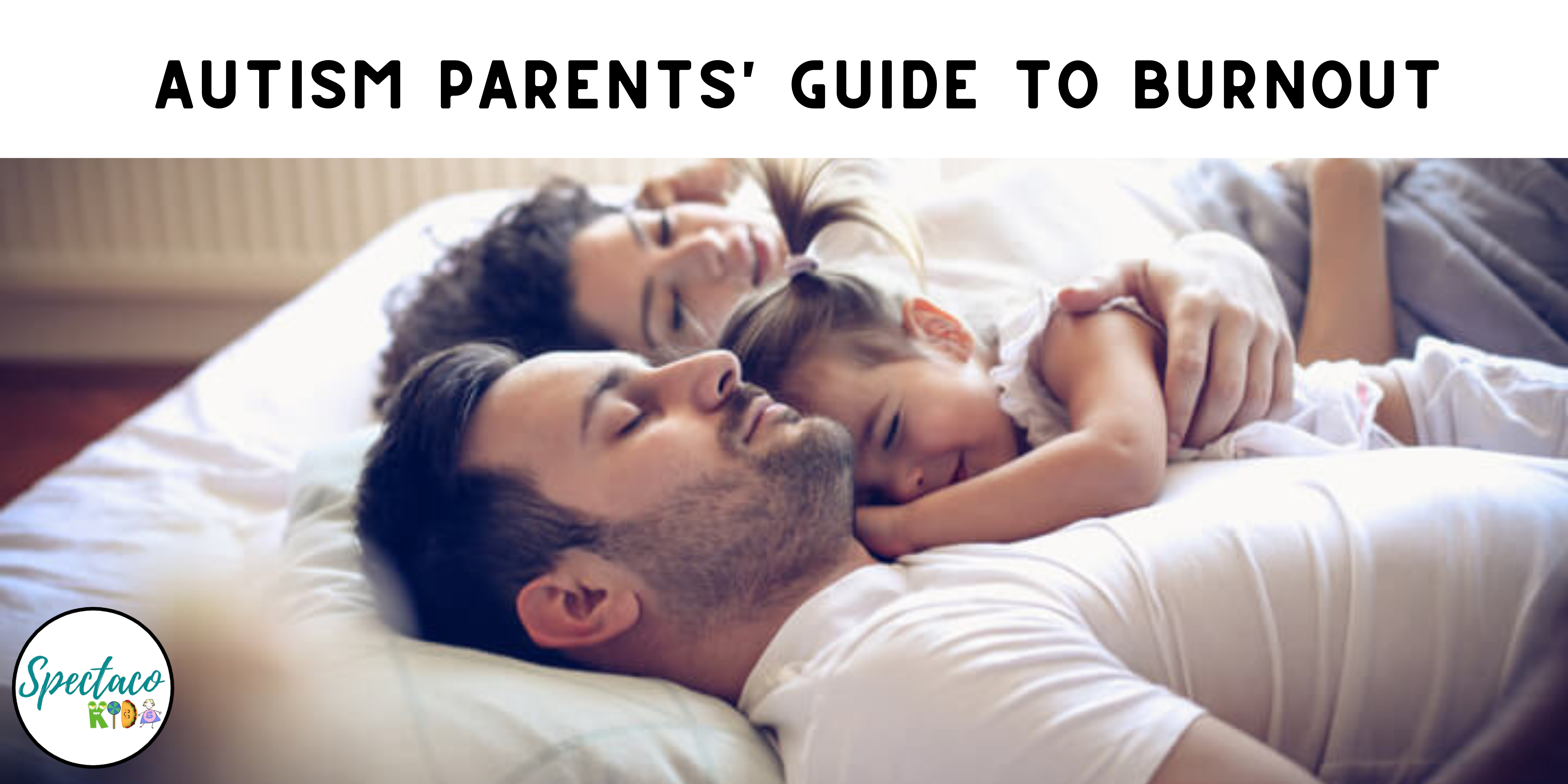Autism and sleep problems
Studies show that over half of autistic people, including adults and children have sleep issues. This issue may last throughout their lives or might diminish in severity at different stages.
However, this issue does not disappear as autistic children grow up. Sleep problems are twice as common among autistic individuals as it is for those with other developmental conditions.
Adults on the spectrum may have more trouble than neurotypical adults with issues such as sleepwalking and insomnia. Even when they do sleep through the night, an autistic adult’s sleep is less refreshing than that of their neurotypical peers.
What are the causes of sleep issues in autistic individuals?
- Genetics
- Lack of melatonin
- Sensory issues
- Physical or mental illness
- Social cues
- Hypersomnia
Genetics
The genetic causes of autism may have some effect on the ability of autistic people to fall asleep, stay asleep, and awake refreshed.
Lack of melatonin
Studies also suggest that autistic people produce less melatonin at night. Melatonin is a hormone that helps to regulate the body’s sleep-wake cycles and various hormones. Autistic individuals have either higher or lower amino acid called tryptophan, which makes melatonin. People on the spectrum have high levels of melatonin during the daytime and lower levels at night.
Sensory issues
Another cause of sleep issues with people on the spectrum is because they are hyper-responsive to sensory input. They have a hard time sleeping because they cannot block out light, sound or touch. An autistic person may wake up abruptly if someone is opening the bedroom door or tucking in the covers.
Social cues
An autistic individual may misinterpret or fail to understand cues such as when their parents or siblings are getting ready for bed. Autistic people may not make the connection between others in the house going to bed and their own need to sleep
Physical or mental illness
Physical and mental illnesses in autistic individuals is another cause that may impact sleep. Illnesses such as obsessive-compulsive disorder, sleep apnea, seizure disorders, acid reflux and anxiety may make it tough for an autistic person to sleep.
Hypersomnia
Hypersomnia is the opposite of insomnia, that is sleeping too much. An autistic person may have an excessive sleep of 10 hours or more that is not refreshing and leaves them tired during the day. Exhaustion may also be caused by stress that autistic individuals experience in social situations.
Effects of sleep problems in autistic individuals:
- Increased behavioral problems
- Depression
- Aggression
- Resistance to bedtime
- Hyperactivity
- Irritability
- Poor learning
- Poor cognitive performance
- Suffer from sleep walking or nightmares
- Severe social problems,
- Trouble with peer relationships
How can you improve an autistic child’s sleep?
Sleep issues can lead to serious challenges both for parents and for the autistic individuals themselves. There are some effective techniques that can improve a child’s sleep.
- Bedtime routine
- Keep the bedroom dark
- Doses of melatonin supplements
- Create a predictable transition
- Work with your child
- Avoid caffeinated beverages or food
- Visit a sleep program
- Exercise
- Naps
Bedtime routine
Set a bedtime routine that starts at least an hour ahead of time, and make sure you stick to it even during weekends and vacations. Provide a routine that includes brushing teeth, putting on pajamas or anything that makes your child comfortable. Some autistic children respond well to a warm bath or are attached to particular stuffed animals. Make sure these are also incorporated into the routine.

Keep the bedroom dark
Make sure you keep the bedroom dark; you can even use blackout curtains. Make sure it is quiet and try to keep outside sound to a minimum to avoid sensory challenges. Consider products geared to people with sensory issues, like a white noise machine, which makes a consistent, sound-blocking sound similar to that of a fan.
Doses of melatonin supplements
A number of studies over the past decade suggest that melatonin improves sleep in some children with autism. Giving low doses of melatonin supplements about 30 minutes before bedtime have been found to be helpful for people on the spectrum.
Create a predictable transition
It helps if you create a predictable transition from waking to sleeping hours. Give warnings to your kid 15 minutes before bedtime. You can do this by turning off the TV, or taking away the tablet. It also helps to use auditory or visual timers.
Work with your child
You should work with your kid to help him fall asleep without you. Start by sitting at the other side of the room and gradually moving farther away until you are outside the door.

Visit a sleep program
Visiting a sleep program may also be worthwhile. Specialists in the area of pediatric sleep issues may have ideas that can help you better understand how to help your child sleep.
Avoid caffeinated beverages or food
You should avoid giving your kid a caffeinated beverage or food item before bedtime. Caffeine is known to disrupt sleep and can be found in tea, coffee, soda, and chocolate.
Exercise
Children who tend to exercise have deeper sleep. Have your kid exercise, but keep in mind that it is not close to bedtime as it may make it difficult for him to sleep.
Naps
Naps are also helpful when it comes to sleep problems. However, naps should not be taken late in the afternoon as they might disrupt bedtime.
Although sleep problems are common with autistic individuals, they may be helped. It is better for the family too when people on the spectrum do not face sleep issues.

For more information, follow us on Instagram or visit our website!




Your writing awakens the mind and softens the heart — a rare and powerful combination.
I was drawn into your words immediately, not just by the ideas, but by the warmth they radiate.
You should avoid giving your kid a caffeinated beverage or food item before bedtime Health-Cloud-Accredited-Professional Dumps. Caffeine is known to disrupt sleep and can be found in tea, coffee, soda, and chocolate.
Yo 56jllogin! Quick and easy login process. Easy navigation, and the games are super fun. I like the quick payouts from this site, too Check it out See 56jllogin for yourself.
okebet4 https://www.okebet4u.com
pagcor https://www.ngpagcor.net
9apisologin https://www.it9apisologin.com
vipjili https://www.vipjiliji.com
77jili https://www.77jilig.net
Is 999PHLcomlegit for real? Well, I’ve had okay experience with it. Give it a go if you’re curious too! 999phlcomlegit
CCZZPH, man these sites all look the same after a while haha. But they seem fine. See for yourself: cczzph
The jljl1loginapp, huh? Not bad! I use it on my phone when I’m on the move. Pretty convenient, but sometimes it glitches. Could use some bug fixes, IMO.
**mitolyn**
Mitolyn is a carefully developed, plant-based formula created to help support metabolic efficiency and encourage healthy, lasting weight management.